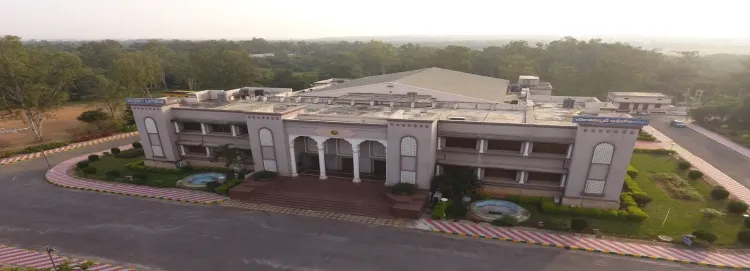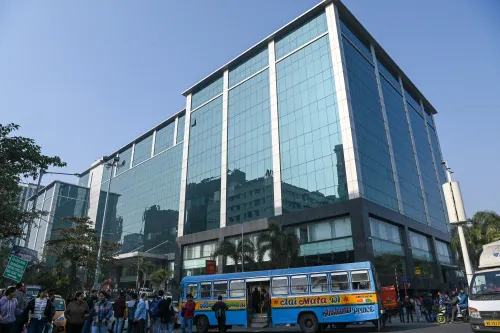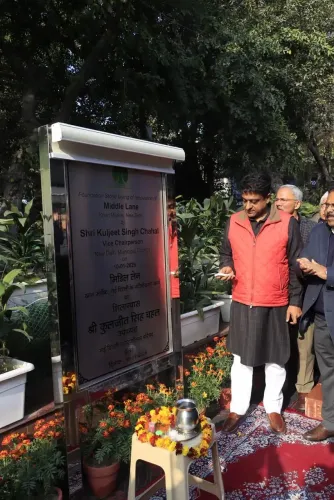What Clarification Did Hyderabad Agricultural University Issue Following Tree Cutting Allegations?

Synopsis
Key Takeaways
- Tree removal aimed at ecological sustainability.
- Controversy highlights student concerns.
- New plantings to include native species.
- Vana Mahotsavam planned for community engagement.
- University's Botanical Garden restoration efforts.
Hyderabad, July 6 (NationPress) The recent removal of trees on the grounds of Professor Jayashankar Telangana Agricultural University has ignited controversy ahead of the plantation initiative led by Chief Minister A. Revanth Reddy. University officials have since clarified that they are eliminating trees deemed detrimental to the environment as part of an ongoing effort to prepare the land for beneficial new plantings.
A group of students voiced their concerns, claiming that earthmovers were employed late Saturday night to cut down trees on campus in anticipation of Vana Mahotsavam, a planting event set to be inaugurated by the Chief Minister on Monday.
Footage showing students confronting police about the presence of heavy machinery circulated on social media, leading to questions regarding the justification for removing existing trees in favor of new ones.
In response, university authorities labeled the social media reports as “false” and “misleading”.
PJTAU Vice-Chancellor Prof. Aldas Janaiah explained that the removal of subabul and eucalyptus trees across 150 acres is a part of a formal initiative aimed at enhancing campus greenery, which was awarded to ITC through an auction process.
He mentioned in a statement that these tree species have been identified as harmful, contributing to groundwater depletion and soil degradation. Furthermore, he urged the public and environmentalists to disregard the misleading information circulating online.
In May, the university had sanctioned the auctioning of 521 eucalyptus and 3,000 subabul trees located across four distinct areas of the campus.
As part of its ongoing efforts to improve greenery, the Hyderabad Metropolitan Development Authority (HMDA) has initiated a project to eliminate these environmentally harmful species from the university grounds. These trees, planted several decades ago, have been linked to a decline in groundwater levels and land health.
The Vice-Chancellor stated that rare and traditional forest species native to Telangana will be planted in place of the removed trees.
He emphasized that this initiative is driven by ecological logic and long-term sustainability objectives. He noted that the university’s Botanical Garden, a once-vibrant aspect of the campus, has suffered over the last 15 years due to the unchecked proliferation of subabul and eucalyptus.
Additionally, he pointed out the presence of invasive weeds such as lantana, parthenium, and prosophis juliflora (commonly known as Sarkar thumma), which are causing significant environmental harm to the campus.
In the upcoming days, eucalyptus and subabul trees across 150 acres will be cleared to create room for planting valuable varieties as part of Vana Mahotsavam.
Approximately 30 native timber, wild fruit, and flowering tree species, along with various bamboo types, will be planted to restore and rejuvenate the Botanical Garden.
The Vana Mahotsavam event, organized by the Forest Department, will see participation from students, volunteers, forest enthusiasts, and members of the local community, the Vice-Chancellor noted.










